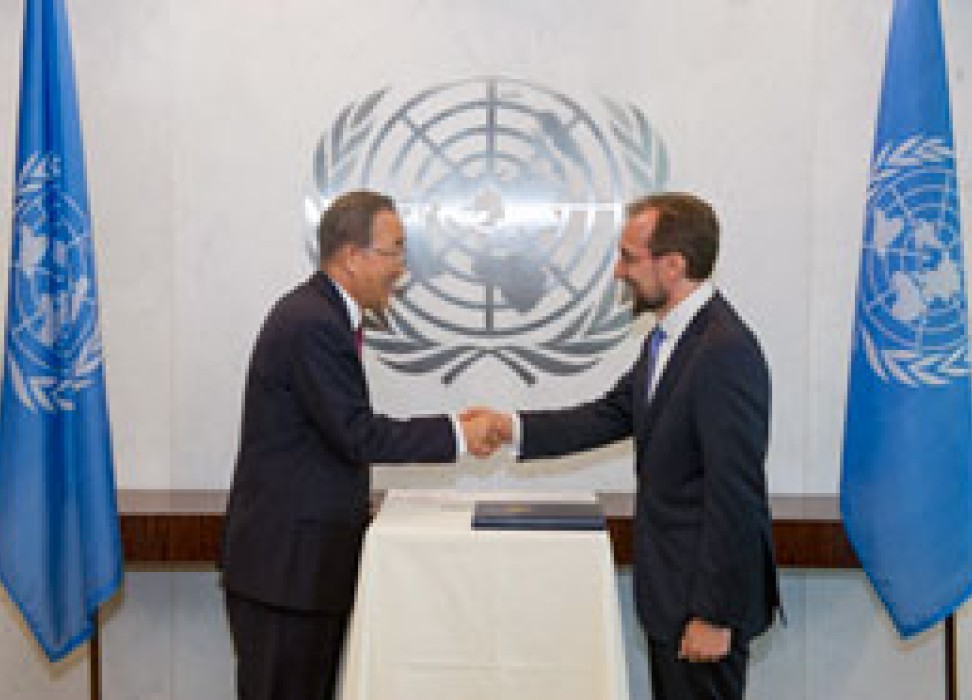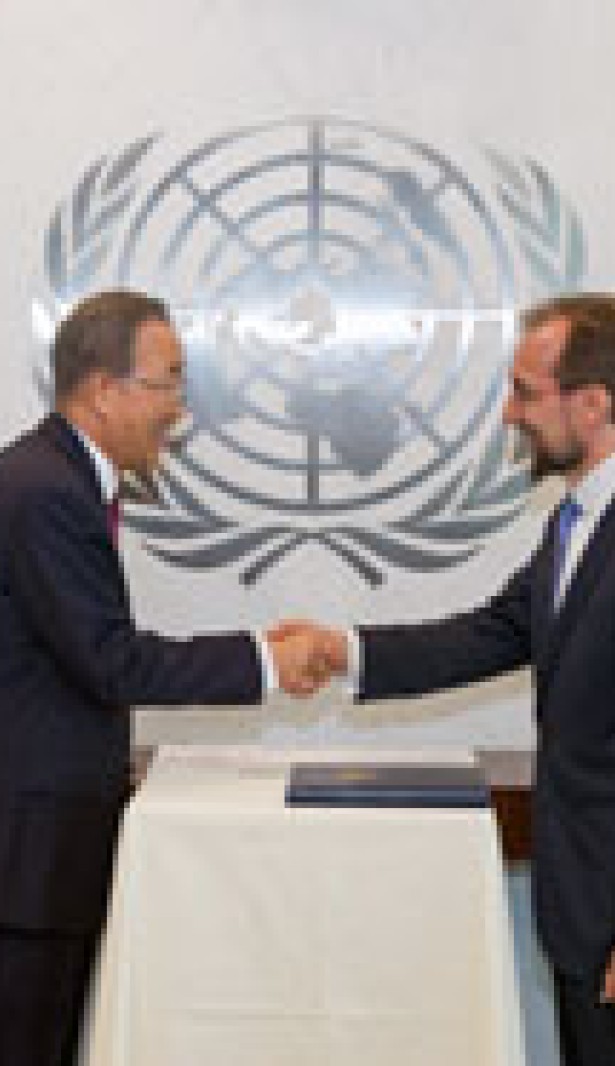Zeid Ra’ad Al Hussein: the new UN High Commissioner for Human Rights
09 September 2014

Zeid Ra’ad Al Hussein brings to his new role as the United Nations most senior human rights exponent, lengthy experience in human rights work, across a number of countries, including in some of the most difficult and complex global situations of the past two decades. For many years he specialized in peacekeeping issues: working in the former Yugoslavia, as a political officer with the UN Protection Force and following allegations of widespread abuse by UN peacekeepers, in 2004 taking up an appointment as Advisor on Sexual Exploitation and Abuse to the then Secretary-General Kofi Annan.
Announcing his appointment after a lengthy selection process, UN Secretary-General Ban Ki-moon emphasized the “central role” High Commissioner Zeid had in the establishment of the International Criminal Court, in particular, his involvement in “the often pioneering negotiations on “elements” of individual offences falling under the crimes of genocide, crimes against humanity and war crimes.” As president of the governing body of the International Criminal Court, for three years from 2002, Zeid supervised its transformation from a title on a page to a working institution.
Zeid has said that agreement to set up the International Criminal Court was “a step so enlightened that it simply has no equivalent or precedent”. In a lecture delivered to the International Center for Ethics, Justice and Public Life at Brandeis University, in the United States, in January of 2013, he speculated that it might be possible to prevent “horrendous crimes” being committed. That could only be achieved, he said, if all children receive an education with a strong universal human rights component. “Children need to know what bigotry and chauvinism are, and that blind obedience can be dangerous when exploited for nefarious ends by figures of authority,” Al Hussein said.
“They should also not feel exceptional,” he said, “because of where they were born, how they look, what passport they carry or what they are being taught to believe ideologically.”
Zeid’s appointment as UN High Commissioner for Human Rights has been widely acclaimed in the media in all regions and in the diplomatic community where he is very well known. He has had a lengthy career representing his country, including as Jordan’s Ambassador to the United States and Mexico, but most recently serving as Jordan’s Permanent Representative to the United Nations in New York.
Former High Commissioner Pillay welcomed Zeid’s appointment, noting his experience in the international arena and “his considerable expertise on various human rights issues and in particular in the area of international justice and the fight against impunity.”
High Commissioner Zeid, speaking at the UN General Assembly after his appointment was approved said, “I am going to be the first High Commissioner from the Asian continent and from the Muslim and Arab worlds… This reflects the commitment of the international community towards this important dossier and its commitment to push it forward in this continent as well as in other regions of the world.”
Zeid is the sixth High Commissioner since the Office was created in 1993. His predecessors are: José Ayala-Lasso (Ecuador, 1994-1997); Mary Robinson (Ireland, 1997-2002); Sergio Vieira de Mello (Brazil, 2002-2003); Louise Arbour (Canada, 2004-2008); and, from 1 September 2008 tol 31 August 2014, Navi Pillay (South Africa).
9 September 2014

